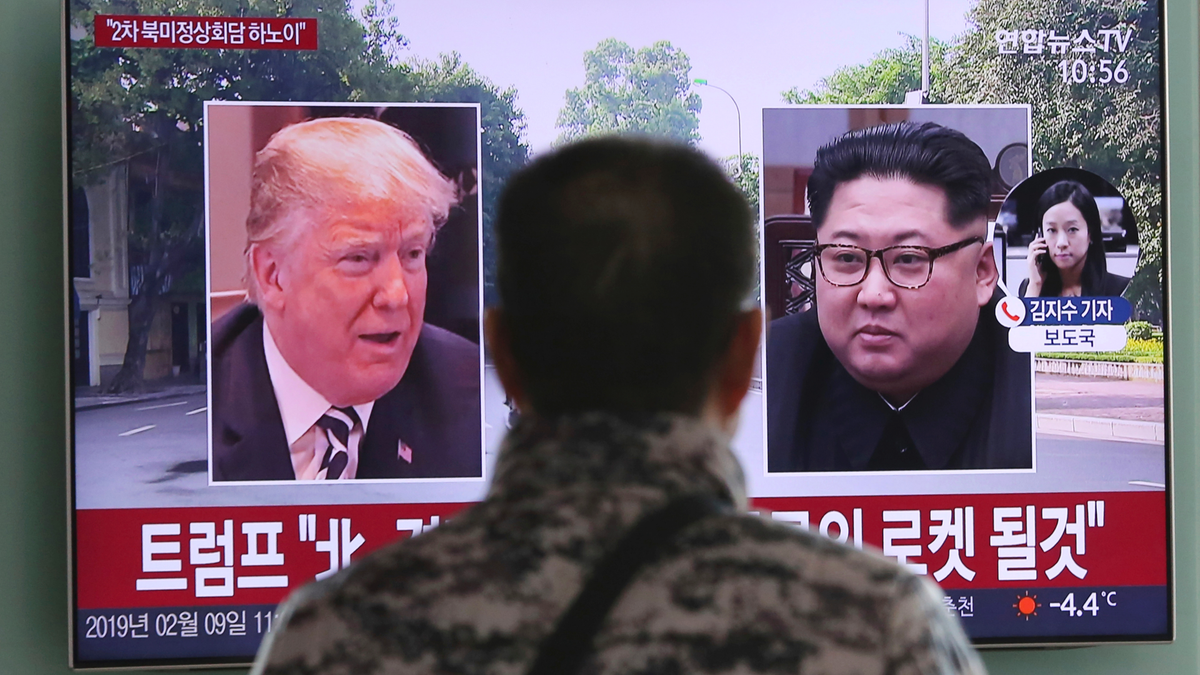
In this Feb. 9, 2019, photo, a man watches a TV screen showing images of U.S. President Donald Trump, left, and North Korean leader Kim Jong Un during a news program at the Seoul Railway Station in Seoul, South Korea. A top U.S. commander says he’s seen little to no change in North Korea’s military readiness or a slowdown in its nuclear weapons program since President Donald Trump and Kim Jong Un met for nuclear talks last year. (AP Photo/Ahn Young-joon)
WASHINGTON – A top U.S. commander said Tuesday that he has not seen any effort by North Korea to curtail its nuclear weapons program since President Donald Trump and Kim Jong Un met for nuclear talks last year.
Army Gen. Robert Abrams testified before the Senate Armed Services Committee ahead of Trump's second meeting with Kim later this month in Hanoi, Vietnam. The U.S. hopes North Korea will give up its nuclear weapons in exchange for an end to punishing international sanctions.
Abrams called the second meeting a "positive sign of continued dialogue," but added, "We have not observed activity that's consistent with a full-court press on denuclearization."
He said there has been a reduction in tensions along the Korean Demilitarized Zone — the buffer zone between North and South Korea — and cited he North's decision to stop missile tests and other provocative actions, but said, "Little to no verifiable change has occurred in North Korea's military capabilities."
Abrams noted it has been some 440 days since North Korea conducted a missile test or a nuclear weapons explosion. But he said North Korea's existing capabilities, along with its continued development of advanced conventional systems, remain unchecked.
"The only observable change has been a reduction in the attention and bellicosity the regime layers onto its military activities. Since the end of 2017, Pyongyang has reduced its hostile rhetoric and halted media coverage of Kim Jong Un's attending capstone events such as large-scale, live-fire training or special operations raids on mock-up alliance targets," Abrams said.
"It is, however, too soon to conclude that a lower profile is indicative of lesser risk," Abrams said.
He advised the committee to maintain a force in the region to deter any possible aggression by North Korea against the United States, South Korea or regional allies. There are about 28,500 U.S. troops stationed in South Korea.









































